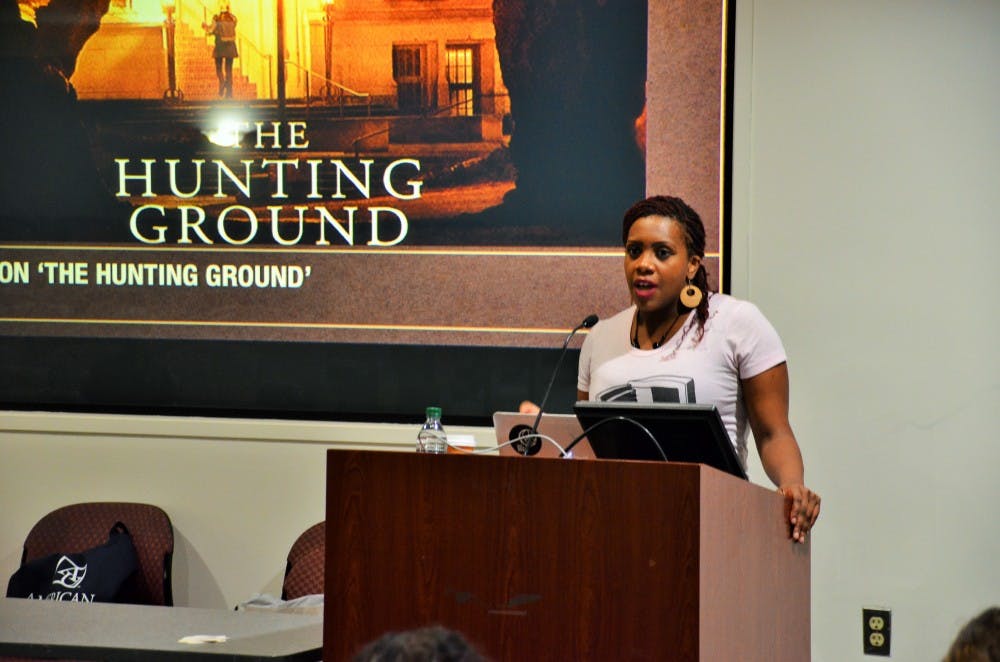Writer, feminist, activist and self-described “bunny lady” Wagatwe Wanjuki spoke to an audience of approximately 25 people on Thursday night as the Women's History Month speaker for the Student Government Women's Initiative.
“The main reason I’m here is the power of the Internet,” Wanjuki said. “I live on the Internet. That’s where I met most of my friends, that's where I learned most of the things that have brought me here today.”
The 29-year-old Title IX activist spoke about her experiences as a survivor of sexual violence, becoming involved in social justice activism and intersectionality in feminism. She began blogging about feminism and campus rape culture as a student at Tufts University, as a way to share her story with a larger audience.
After she was sexually assaulted multiple times by a fellow Tufts student, Wanjuki said she attempted to report her assault to the university. According to her, administrators told her their legal counsel said they did not have to take action. Without her university’s support, the trauma of her assault began negatively impacting her grades, and in 2009 - one year before she was supposed to graduate - Wanjuki withdrew from Tufts.
“I want [Tufts University] to know it felt like they didn’t care, they didn’t know what they were doing and as a result I felt victimized again,” she said in an interview with The Eagle.
Since then, Wanjuki has taught herself how to create a website, worked with the national organization Students Active for Ending Rape (SAFER) and become a founding co-organizer of the “ED ACT NOW, Know Your IX” campaign to help spread awareness about Title IX among college students. She also garnered national attention after creating the trending Twitter campaign #SurvivorPrivilege, a hashtag developed in response to an op-ed published in The Washington Post about campus rape culture and progressivism.
Today, she writes for multiple online publications, travels around the country to speak about campus rape culture and has appeared in documentaries and on TV. Despite this extensive involvement with the media, Wanjuki said she has a complicated relationship with what she sees as an “inherently oppressive” institution.
“I would love for media to not go to the same people over and over again and just be willing to listen to new voices, hear stories and to take chances of giving different points of view,” she said. “I’d love the media to just be more ethical, because they are really effective and a powerful force if it’s done the right way.”
In a recent essay in The Establishment, Wagatwe spoke about her experiences as a survivor in the public eye and the challenges of being defined by the worst experience of her life.
“I would love the space to be able to say I’m still figuring it out, and I’m still trying to see who I am and what works well for me,” she said in the interview. “[I want to be known as] someone who’s smart, strong and resilient and hopefully funny sometimes and a good writer.”
Still, activism plays a huge role in Wanjuki’s life. She said that while each activist is different, they each have a tremendous amount of power to make change.
“I love the tenacity of college activists,” Wanjuki said. “I hope that they continue to be willing to make mistakes and to learn things and to try because this is really the time of this is the best time in your life just to try and figure things out and make a really big impact.”
asrikanth@theeagleonline.com





